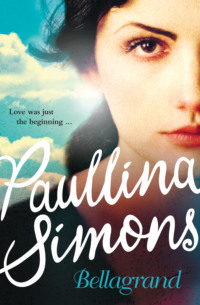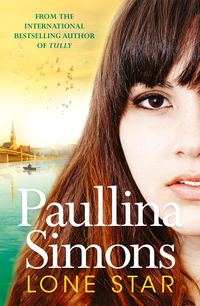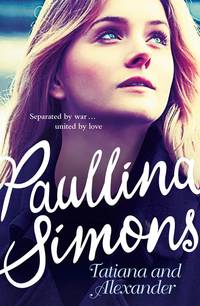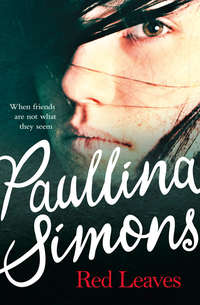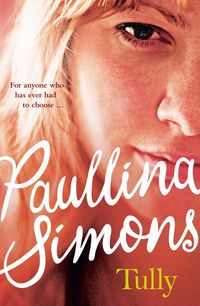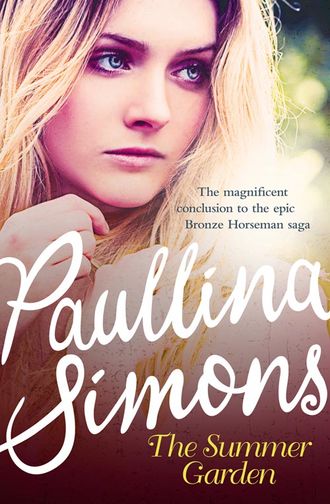
Полная версия
The Summer Garden
Anthony laughed.
“Exactly,” Alexander said. “Big cows with bells and milk udders would go running down the village road after your young mother, and no matter how hard she ran, she couldn’t get away.”
“Did they go moo?” said Anthony. “Here moo, there moo, everywhere moo-moo.”
“Oh, yes.”
In the night Anthony crawled to his mother’s side, and Alexander and Tatiana, both awake, said nothing. Alexander had just come back to bed himself, barely dry. Her arm went around Anthony, and Alexander’s damp icy arm went around Tatiana.
The Body of War
As it began to stay lighter later, they would go swimming when the park beaches emptied. Tatiana hung upside down on the monkey bars, they played ball, they built things in the sand; the beach, the bars, the breaking Atlantic were good and right as rain. Alexander sometimes even took off his T-shirt while he swam in the languid evenings—slowly, obsessively trying to wash away in the briny ocean typhus and starvation and war and other things that could not be washed away.
Tatiana sat near the shoreline, watching father and son frolic. Alexander was supposed to be teaching Anthony how to swim, but what he was doing was picking the boy up and flinging him into the shallow waters. The waves were perfect in Miami for a small boy, for the waves were small also. Son jumped to father, only to be thrown up in the air and then caught again, thrown up in the air very high and then caught again. Anthony squealed, shrieked, splashed, full of monumental joy. And there was Tatiana nearby, sitting on the sand, hugging her knees, one of her hands out in invocation, careful, careful, careful. But she wasn’t saying it to Alexander. She was saying it to Anthony. Don’t hurt your father, son. Be gentle with him. Please. Can’t you see what he looks like?
Her breath burned her chest as she furtively glanced at her husband. Now they were racing into the water. The first time Tatiana had seen Alexander run into the Kama River in Lazarevo, naked except for his shorts—like now—his body was holy. It was gleaming and woundless. And he’d been in battles already, in the Russo-Finnish War; he’d been on the northern rivers of the Soviet Union; he had defended the Road of Life on Lake Ladoga. Like her, he had lived through blighted Leningrad. Why then, since she had left him, had this happened to him?
Alexander’s bare body was shocking to see. His back, once smooth and tanned, was mutilated with shrapnel scars, with burn scars, with whip marks, with bayonet gouges all wet in the Miami sun. His nearfatal injury at the breaking of the Leningrad blockade was still a fist-sized patch above his right kidney. His chest and shoulders and ribs were defaced; his upper arms, his forearms, his legs were covered with knife and gunpowder burn wounds, jagged, ragged, raised.
Tatiana wanted to cry, to cry out. It wasn’t fair! It wasn’t right that he should carry Hitler and Stalin on his whole body, even here in Miami where the tropical waters touched the sky. The colonel had been right. It wasn’t fair.
And because all the other iniquities were not enough, the men that guarded Alexander tattooed him against his will, as punishment for escape, as a warning against possible transgressions, and as an ultimate slur against his future—as in, if you have a future at all, you will never have an unblemished one.
Tatiana watched him and her pitying heart rolled around the concrete drum of her insides.
On Alexander’s upper left arm was a black tattoo of a hammer and sickle! It was burned into him by the depraved guards at Catowice—so they would know him by his marks. Above the hammer and sickle, on his shoulder there was a mocking tattoo of a major’s epaulet, taunting that Alexander had spent too much time in solitary confinement. Under the hammer and sickle was a large star with twenty-five points on it—one point for each of the years of his Soviet prison sentence. On the inside of his right forearm, the numbers 19691 were burned in blue—the Soviets learned to use the Nazi torture implements with glee.
On his right upper arm a cross was tattooed—Alexander’s only voluntary mark. And above the cross, he was branded with an incongruous SS Waffen Eagle, complete with a swastika, as a symbol of grudging respect from the ill-fated guard Ivan Karolich for Alexander’s never having confessed to anything despite the severe beatings.
The concentration camp numbers were the hardest to hide, being so low on his arm, which was why he didn’t often roll up his sleeves. Jimmy in Deer Isle had asked about the numbers, but Jimmy hadn’t been to war, and so when Alexander said, “POW camp,” Jimmy didn’t follow up and Alexander didn’t elaborate. The blue numbers now, post Holocaust, screamed of Jewish suffering, not Soviet suffering, of someone else’s life, not Alexander’s. But the hammer and sickle, the SS insignia!—all alarms on his arm, ringing to be explained—were impossible to explain away in any context. Death camp numbers and a swastika? There was nothing to do about any of it, except cover it from everyone, even each other.
Tatiana turned to watch a family strolling by, two small girls with their mother and grandparents. The adults took one glimpse at Alexander and gasped; in their flustered collective horror, they shielded the eyes of the little girls; they muttered, they made the sign of the cross—on themselves, and hurried on. Tatiana judged them harshly. Alexander, lifting and throwing Anthony, never noticed.
Whereas once, certainly in Lazarevo with Tatiana, Alexander looked god-like, it was true now, the strangers were right—Alexander was disfigured. That’s all anyone saw, that’s all anyone could look at.
But he was so beautiful still! Hard still, lean, long-legged, wide-shouldered, strapping, impossibly tall. He’d gained some of his weight back, was muscular again after hauling all those lobster traps. On the rare occasions he laughed, the white of his teeth lit up his tanned face. His sheared head looked like a black hedgehog, his milk chocolate eyes softened every once in a while.
But there was no denying it, he was damaged—and nowhere more noticeably than in this, his American life. For in the Soviet Union, Alexander would have been among millions of men who were maimed like him, and he might have thought no more of it as they sent him out in his sheepskin parka to log in their woods, to mine in their quarries. Here in America, Tatiana sent him out in public, not in a parka but in linen, covering him from his neck to his ankles, to man their boats, to fix their engines.
During lovemaking Tatiana tried to forget. What needed to be whole and perfect on Alexander remained whole and perfect. But his back, his arms, his shoulders, his chest: there was nowhere for her to put her hands. She held onto his head, which was marginally better. There was a long ridge at the back of the occipital lobe, there were knife wounds. Alexander carried war on his body like no one Tatiana had ever known. She cried every time she touched him.
Tatiana couldn’t touch Alexander at night and prayed he didn’t know it.
“Come on, you two,” she called to them weakly, struggling to her feet. “Let’s head home. It’s getting late. Stop your horsing around. Anthony, please. What did I tell you? Be careful, I said!” Can’t you see what your father looks like?
Suddenly her two men, one little, one big, both with the straight posture, the unwavering gazes, came and stood in front of her, their legs in the sand, each in an A, their hands on their hips like kettles.
“Ready to go then?” she said, lowering her gaze.
“Mommy,” said her son firmly, “come and play.”
“Yes, Mommy,” said her husband firmly, “come and play.”
“No, it’s time to go home.” She blinked. A mirage in the setting sun made him disappear for a second.
“That’s it,” said Alexander, lifting her into his arms. “I’ve had just about enough of this.” He carried her and flung her into the water. Tatiana was without breath and when she came up for air, he threw himself on her, shaking her, disturbing her, implacably laying his hands on her. Perhaps he wasn’t a mirage after all, his body immersed in water that was so salty he floated and she floated, too, feeling real herself, remembering cartwheeling at the Palace of the Tsars for him, sitting on the tram with him, walking barefoot through the Field of Mars with him while Hitler’s tanks and Dimitri’s malice beat down the doors of their hearts.
Alexander picked her up and threw her in the air, only pretending to catch her. She fell and splashed and shrieked, and scrambling to her feet, ran from him as he chased her onto the sand. She tripped to let him catch her and he kissed her wet and she held on to his neck and Anthony jumped and scrambled onto his back, break it up, break it up, and Alexander dragged them all deeper in and tossed them into the ocean, where they bobbed and swayed like houseboats.
Alexander’s Favorite Color
“Tania, why haven’t you called Vikki?” Alexander asked her at breakfast.
“I’ll call her. We’ve only been here a few weeks,” she said. “Where’s the fire?”
“Try eleven.”
“Eleven weeks? No!”
“I know how much rent I’ve paid. Eleven.”
“I didn’t realize it’s been that long. Why are we still here?” Tatiana muttered, and quickly changed the subject to Thelma, the nice woman she met in the store a few mornings ago. Thelma’s husband had recently come back from Japan. Thelma was looking for something to entertain him with as he seemed a bit down in the dumps. Tatiana had suggested a boat ride, and Thelma had sprung at the idea.
Thelma apparently didn’t make it to the boat that afternoon, nor the next, though all afternoons were equally blue-skied and acceptable. When Tatiana ran into her at the store a few days later, Thelma muttered an excuse but said she and her husband were hoping to get to the boat this afternoon for sure. She asked Tatiana if she came on the boat. Tatiana said no, explaining about her son’s nap and her husband’s dinner and other home things. Thelma nodded in sisterly understanding, doing the home things herself that morning. She was making a hot apple cobbler. Apparently men returning home from the war liked that.
Alexander had been bringing home astonishing amounts of money. One dollar, two dollars, five dollars, twenty dollars.
“Even my math is failing me,” Tatiana said, sitting at the kitchen table with a stash of singles and fives in front of her. “I can’t count this high. Did you make a—hundred dollars today?”
“Hmm.”
“Alexander, I want to know what you’re doing to these women for a hundred dollars a day.”
When he smoked and grinned and didn’t reply, she said, “That was not a rhetorical question. Your wife would like an answer.”
He laughed, and she laughed, ha ha, but the next day when she went to pick up Anthony from the boat, who should she see but Thelma, nattily dressed standing at a distance Tatiana deemed to be too close to her barely salvaged husband. She wasn’t even sure it was Thelma, for in the grocery store Thelma was sans makeup and wore grocery store clothes. Here, her wavy dark hair was curled and teased, she had makeup on … she ….Tatiana wasn’t even sure what it was that was provocative— perhaps the tightness of the skirt around the hips, the bareness of leg underneath, perhaps the wine trollop lips in the middle of a torrid noon, perhaps even the smiling tilt of the coquettish, slatternly head.
“Thelma?” Tatiana said, coming up the plank. “Is that you?”
Thelma snapped around as if she’d heard a voice from the grave. “Oh! Hi.”
“Oh, hi,” said Tatiana, stepping between her and Alexander. She turned to face the woman. “I see you’ve met my husband. Where’s your husband?”
High-heeling away, Thelma waved her off. “He couldn’t make it today.”
Tatiana said nothing—then. But she asked Anthony the next morning, in full hearing of a certain husband having breakfast, about the nice woman on the boat, and Anthony told her that she’d been coming every morning for some time.
“Is that so?”
“No, that is not so,” intervened a certain husband.
“And, Anthony, does the nice woman’s husband come with her?”
“Oh no. She doesn’t have a husband. She told Daddy her husband ran away. She said he didn’t want to be married after the war.”
“Oh, really?”
“Yes, and, Mommy,” said Anthony, licking his lips, “she brought us an apple cobbler to eat. It was so yummy!”
Tatiana said nothing else. She didn’t even look up. Alexander tilted his head across the table to get her attention, saying nothing himself. When he went to kiss her, he cupped her face and made her look up at him. His eyes were twinkling. He kissed her nice and open, making the lava pit in her stomach nice and open, too, and left for work.
When Tatiana went to pick up Anthony at noon, Thelma wasn’t there.
“Mommy,” Anthony whispered. “I don’t know what Daddy said to her this morning, but she ran from the boat in tears!”
Thelma was never seen again, not even in the grocery store.
At home Alexander said, “You want to come with me tomorrow for the morning ride, for the afternoon ride? You know you can come on the boat with me any time you want.”
“Can I now?”
“Of course. Any time. You haven’t expressed any interest.” He paused. “Until now.”
There was something slightly … Tatiana didn’t know … pointed in his remark. Something accusing. But accusing her of what? Of cooking and cleaning and washing for him? Of braiding her hair and shaving and scrubbing herself pink, and putting on gauzy dresses and sheer panties and musk oil to come to meet him in the evenings? Of letting him have an hour or two with his boy in the mornings?
She contemplated making an issue of it. But an issue of what? She studied him, but he was already past it, as he was past most things, reading the paper, drinking, smoking, talking to Anthony.
Tatiana did come on the boat ride the next morning.
“Your hair is in a crew cut,” a girl murmured to him after she sauntered to stand by his side while Tatiana sat quietly nearby, Anthony on her lap. “Almost like you’re in the army,” the girl persisted when Alexander didn’t reply.
“I was in the army.”
“Oh that’s great! Where did you serve?”
“On the Eastern Front.”
“Oh, wow. I want to know everything! Where is this Eastern Front, anyway? I’ve never heard of it. My father was in Japan. He’s still there.” The girl, who looked to be in her late teens, continued nonstop. “Captain, you’re driving the boat so fast, and it’s getting so windy, and I’m wearing this flouncy skirt. You don’t think it’ll be a problem, do you? The wind isn’t going to kick the skirt up, in an immodest sort of way?” She giggled.
“I don’t think so. Ant, do you want to come, help me steer?”
Anthony ran to his father. The girl turned around to glance at Anthony and at Tatiana, who smiled, giving her a little wave.
“Is this your son?”
“Yes.”
“Is that, um … ?”
“My wife, yes.”
“Oh. Excuse me. I didn’t know you were married.”
“I am, though, nonetheless. Tania, come here. Meet … sorry, I didn’t catch your name.”
As Tatiana walked past the girl to get to Alexander, she said, “Excuse me,” and added evenly, “I think the wind might indeed kick up that immodesty you were talking about. Better grab on to the skirt.”
Alexander bit his lip. Tatiana stood calmly next to him, her hand on the wheel.
That evening walking home, he said, “I either continue to invite questions or I can grow out my hair.” When she didn’t say anything—because she didn’t think her husband with a head full of shiny black hair would be repellent enough—he prodded her to tell him what she was thinking.
She chewed her lip. “The constant female attention … um … wanted or unwanted?”
“I’m indifferent, babe,” he said, his arm around her. “Though amused by you.”
Tatiana was quiet when Alexander came home the following evening.
“What’s the matter? You’re more glum than usual,” he asked after he came out from the bath.
She protested. “I’m not usually glum.” Then she sighed. “I took a test today.”
“What test?” Alexander sat down at her table. “What does the husband want for dinner?”
“The husband wants plantains and carrots and corn and bread, and shrimp, and hot apple cobbler with ice cream for dinner.”
“Hot apple cobbler?” Alexander smiled. “Indeed. Indeed.” He laughed, buttering his bread roll. “Tell me about this test.”
“In one of my magazines. Ladies Home Journal. There’s a test. ‘How Well Do You Know Your Husband?’”
“One of your magazines?” His mouth was full. “I didn’t know you read any magazines.”
“Well, perhaps it would behoove you to take that test, too, then.”
He was twinkling at her from across the table, buttering another roll. “So how did you do?”
“I failed, that’s how I did,” Tatiana said. “Apparently I don’t know you at all.”
“Really?” Alexander’s face was mock-serious.
Tatiana flung the magazine open to the test page. “Look at these questions. What is your husband’s favorite color? I don’t know. What is his favorite food? I don’t know. What sports does he like best? I don’t know. What is his favorite book? His favorite movie? His favorite song? What’s his favorite flavor ice cream? Does he like to sleep on his back or his side? What was the name of the school he graduated from? I don’t know anything!”
Alexander grinned. “Come on. Not even the back or side question?”
“No!”
Continuing to eat his roll, he got up, took the magazine out of her hands and threw it in the trash. “You’re right.” He nodded. “There is nothing to be done. My wife doesn’t know my favorite ice cream flavor. I demand a divorce.” He raised his eyebrows. “Do you think a priest will give us an annulment?” He came up to her, sitting dejectedly in the chair.
“You’re making fun,” Tatiana said, “but this is serious.”
“You don’t know me because you don’t know what my favorite color is?” Alexander sounded disbelieving. “Ask me anything. I’ll tell you.”
“You won’t tell me anything! You don’t talk to me at all!” She started to cry.
Wide-eyed, flummoxed, stopped in mid-laugh, Alexander speechlessly opened his hands. “A second ago, this was all kind of funny,” he said slowly.
“If I don’t even know a simple thing like your favorite color,” Tatiana said, “can you imagine what else I don’t know?”
“I don’t know my own favorite color! Or movie, or book, or song. I don’t know, I don’t care, I never thought about it. Good God, is this what people are thinking about after the war?”
“Yes!”
“Is this what you want to be thinking about?”
“Better than what we’ve been thinking about!”
Anthony, bless his small ways, came out of his bedroom, and, as always, prevented them from ever finishing any discussion until he was well asleep. All the things they talked about had to involve him, be compelling to him. As soon as he heard his mother and father talking in animated tones, he would come and take one of them away.
But later, in their bed, in the dark, Tatiana, who still had on her glum face, said to Alexander, “We don’t know each other. It occurs to me now—perhaps a little belatedly—that we never did.”
“Speak for yourself,” he said. “I know how you’ve lived and I know how you like to be touched. You know how I’ve lived and you know how I like to be touched.”
Oh. Alexander may have known theoretically, intellectually, how Tatiana liked to be touched, but he certainly never touched her that way anymore. She didn’t know why he didn’t, he just didn’t, and she didn’t know how to ask.
“Now, can I make love to you once without you crying?”
Certainly she didn’t want to make him touch her.
“Just once, and please—don’t tell me you’re crying from happiness.”
She tried not to cry when he made love to her. But it was impossible.
The goal was to find a way to live and touch where everything that had happened to them to bring them here could be put away somewhere safe, from where they could retrieve it, instead of it retrieving them any time it felt like it.
In the bedroom they were night animals; the lights were always off. Tatiana had to do something.
“What is that god-awful smell?” Alexander said when he came home from the marina.
“Mommy put mayonnaise in her hair,” said Anthony with a face that said, Mommy washed her face with duck poop.
“She did what?”
“Yes. This afternoon she put a whole jar of mayonnaise in her hair! Dad, she sat with it for hours, and now she can’t get the water hot enough to rinse it out.”
Alexander knocked on the bathroom door.
“Go away,” her voice said.
“It’s me.”
“I was talking to you.”
Opening the door, he came in. She was sitting bedraggled in the bath with her hair wet and slick. She covered her breasts from him.
“Um—what are you doing?” he said, with an impassive face.
“Nothing. What are you doing? How was your afternoon?” She saw his expression. “One wrong word from you, Alexander …” she warned.
“I said nothing,” he said. “Are you going to … come out soon? Make dinner, maybe?”
“The water is lukewarm, and I just can’t get this stuff out. I’m waiting for the tank to reheat.”
“It takes hours.”
“I got time,” she said. “You’re not hungry, are you?”
“Can I help?” Alexander asked, working very, very hard at a straight face. “How about I boil some water on the stove and wash it out?”
Mixing boiling water with the cold, Alexander sat shirtless at the edge of the tub and scrubbed Tatiana’s head with shampoo. Later they had cheese sandwiches and Campbell’s tomato soup. The tank reheated; Tatiana washed the hair again. The smell seemed to come out, but when the hair dried, it still smelled like mayonnaise. After they put Anthony to bed, Alexander ran the bath for her and washed her hair once more. They ran out of shampoo. They used heavy duty soap. The hair still smelled.
“It’s like your lobsters,” she said.
“Come on, the fish weren’t this bad.”
“Mom almost smells like herself again,” said Anthony when Alexander came home the next day. “Go ahead, Dad, smell her.”
Dad leaned down and smelled her. “Mmm, quite like herself,” he agreed, placing his hand on her hair.
Tatiana knew that today her hair, down to her lower back, glowed gold and was silken and shiny and exceedingly soft. She had bought strawberry shampoo that was berry fresh and washed her coconut-suntan-lotioned body with vanilla scented soap. Tatiana sidled against Alexander, gazing up up up at him. “Do you like it?” she asked, her breath catching.
“As you know.” But he took his hand away and only glanced down down down at her.
She got busy with steak and plantains and tomato roulade.
Later, out on the deck, he said quietly, “Tania, go get your brush.”
She ran to get the brush. Standing behind her—as if in another life—Alexander slowly, carefully, gently brushed out her hair, running his palm down after each stroke of the brush. “It’s very soft,” he whispered. “What in the world did you put mayonnaise in it for?”
“The hair was dry from the coloring, the leaching and then the ocean,” Tatiana replied. “Mayonnaise is supposed to make it smooth again.”
“Where did you hear that?”
“Read it in a beauty magazine.” She closed her eyes. It felt so good to have his hands in her hair. Her hot liquid stomach was pulsing.
“You need to stop with the magazines.” Bending, Alexander pressed his mouth into the back of her head, running his lips back and forth against her, and Tatiana groaned, and was embarrassed that she couldn’t stop herself in time.



